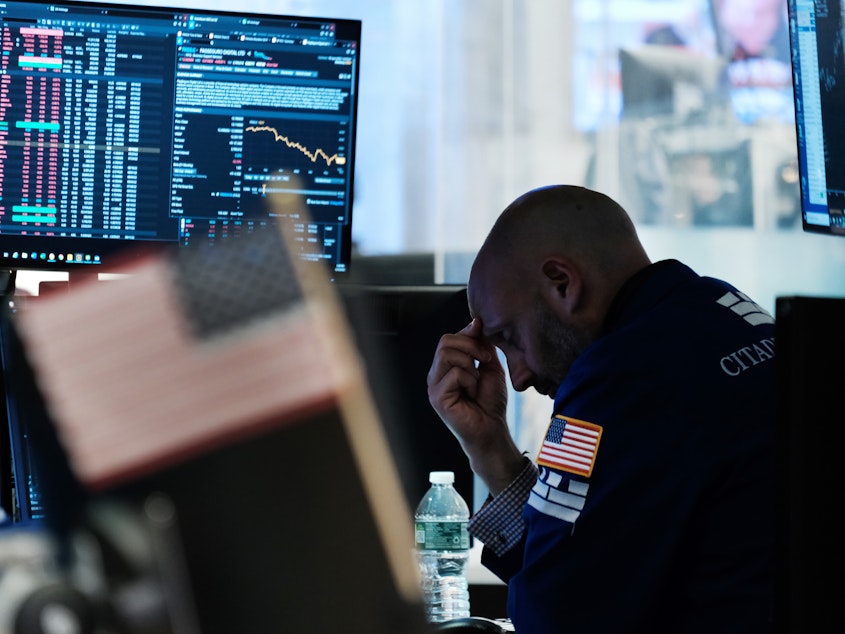Stocks sink, sending the S&P 500 to a bear market once again

It's looking like another grim day in Wall Street as fears about inflation intensify.
The S&P 500 fell once again into bear market territory on Monday after slumping more than 2% at the open, meaning the broad benchmark index has now dropped more than 20% from its most recent high.
The other indexes also slumped, with the Dow Jones Industrial Average down 2%, or over 600 points, while the Nasdaq fell 2.8%.
The falls were triggered by a stronger-than-expected inflation report on Friday, which is raising concerns the Federal Reserve will need to raise interest rates even more aggressively this year.
The Fed kicks off its two-day meeting on Tuesday and it had already been expected to raise interest rates by half a percentage point for a second month in a row.
Sponsored
The latest inflation report now raises the likelihood of more big rate hikes in coming months. Those actions may help curb price gains but markets are fearful the strong response from the central bank will also push the economy into a recession.
"U.S. equity markets are reacting negatively to last week's hotter-than-expected reading for inflation," says Sam Stovall, chief investment strategist at CFRA.
"Investors are now increasingly concerned that the Fed is too far behind the curve to slow the rise in inflation without throwing the economy into recession," Stovall adds, referring to when a central bank is moving late in addressing price gains.
Stocks have had a miserable year because of inflation fears. The Nasdaq, which has a higher concentration of technology shares, has been in a bear market for months.
A bear market is considered an important barometer of investor pessimism and is symbolic of a deep and sustained market selloff.
Sponsored
This developing story will be updated [Copyright 2022 NPR]



